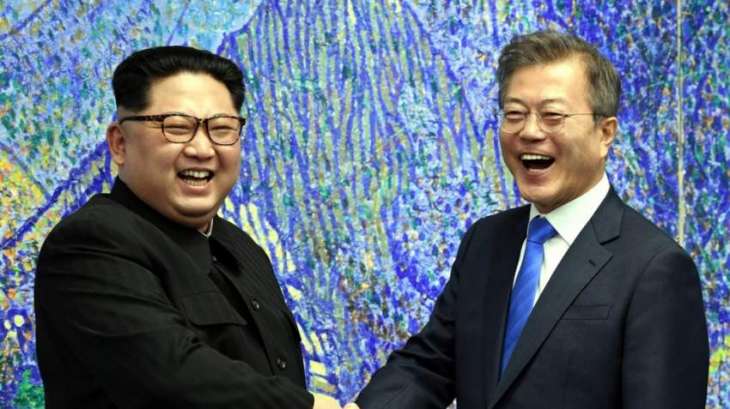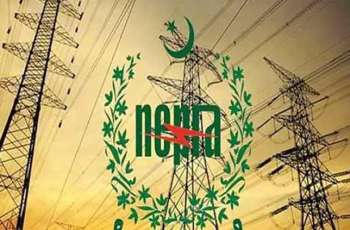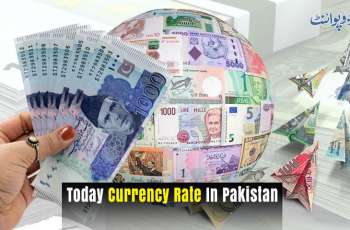With limited room for progress on denuclearization negotiations, the three-day inter-Korean summit that will start in Pyongyang on Tuesday is likely to focus on improving economic cooperation between the two nations, while working under the constraint of tough economic sanctions.
MOSCOW (Pakistan Point News / Sputnik - 17th September, 2018) With limited room for progress on denuclearization negotiations, the three-day inter-Korean summit that will start in Pyongyang on Tuesday is likely to focus on improving economic cooperation between the two nations, while working under the constraint of tough economic sanctions.
South Korean President Moon Jae-in will travel to Pyongyang on Tuesday and meet with North Korean leader Kim Jong Un for the third time this year.
Following the historic first summit between the two leaders at the Demilitarized Zone (DMZ) in late April, a second surprise summit took place on the North Korean side of the border in late May, after US President Donald Trump threatened to cancel his planned summit with Kim.
The second inter-Korean summit helped salvage the first meeting between Trump and Kim in Singapore, which ended up happening in June, when North Korea reiterated its pledge to completely denuclearize the Korean Peninsula.
However, following the Singapore Summit, Kim has not taken concrete steps toward denuclearization, such as offering a detailed list of the nation's nuclear arsenal or agreeing to a specific time line on when to get rid of the country's nuclear weapons. The lack of substantial progress on denuclearization process led to US Secretary of State Mike Pompeo canceling a planned trip to Pyongyang last month.
LITTLE PROGRESS ON DENUCLEARIZATION
As the negotiations on denuclearization between North Korea and the United States appear to be stalled at the moment, the South Korean president could try to play the mediator role once again, after his diplomatic efforts in March delivered Pyongyang's message to Washington and eventually led to the Singapore Summit.
However, with North Korea now capable of engaging in a direct dialogue with the United States, there is little room for the South Korean president to help bridge the gap between Pyongyang and Washington, political analysts suggested.
"Any negotiations that have anything of consequence on denuclearization, North Korea would want to do that part of the negotiation with the United States," James Kim, an international relations expert at the Asan Institute for Policy Studies in Seoul, told Sputnik.
As a former lawyer who held liberal views and promoted engagement with North Korea, Moon tried to revive the so-called sunshine policy after taking office and responded to Kim's willingness to improve inter-Korean relations positively.
As part of the efforts to implement the joint Panmunjom Declaration released after the inter-Korean summit in April, family members from the two countries, separated during the Korean War, were allowed to be reunited in August. To improve bilateral communications, a liaison office between the two countries was opened on the North's side of the DMZ last week.
Although bilateral economic cooperation projects could risk violate existing economic sanctions against North Korea, Moon continued to push forward his efforts to improve inter-Korean exchanges by leading a delegation of top South Koreans business leaders to Pyongyang.
Samsung chief Lee Jae-yong, SK chairman Chey Tae-won, LG chairman Koo Kwang-mo and Hyundai Motor vice chairman Kim Yong-hwan will accompany Moon to North Korea and take part in events related to the inter-Korean summit.
"Ultimately, the goal here [during the inter-Korean summit] is to deepen the economic cooperation and deepen confidence building measures," Professor Kim said.
During the inter-Korean summit in late April, both sides agreed to pursue a formal declaration of the end of the Korean War, which is technically put on hold because of the Korean Armistice Agreement signed in 1953.
However, the Asan Institute's expert pointed out that it would be difficult for the two Koreas to declare the end of the Korean War without the participation of the United States, which was a key party in the war.
The South Korean scholar noted that the upcoming summit could pave the way for a second meeting between the US and North Korean leaders, which could take place in October in a third-party country. The expert pointed out that it was unlikely for Kim to travel to New York to take part in the United Nations General Assembly later this month, due to the logistical challenges and security concerns from North Korea.




